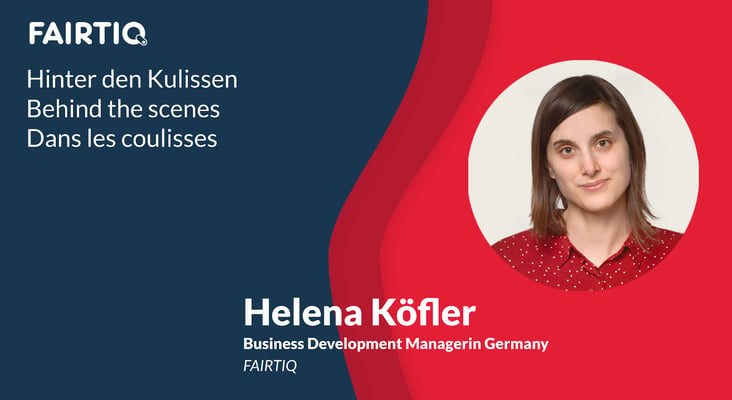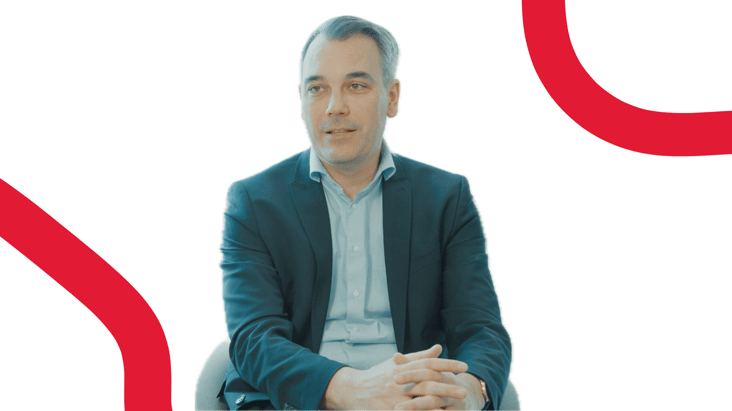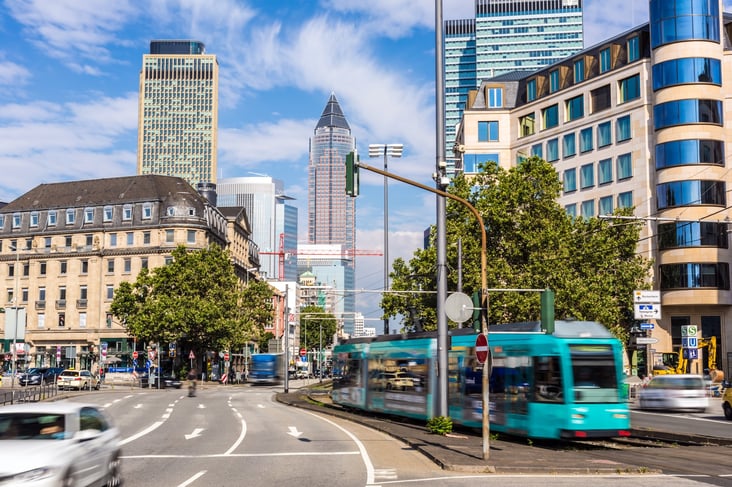
FAIRTIQ Business Development Manager and mobility expert Helena Köfler took some time out to talk us through the different solutions that FAIRTIQ can offer corporate customers wishing to encourage more sustainable mobility within their firm.
In addition to over 40 public transport companies in Switzerland, Liechtenstein, Austria and Germany, FAIRTIQ can count on a growing network of private-sector partners, including HILTI, the tool manufacturer, and Mercedes. FAIRTIQ delivers bespoke solutions that provide employees with alternatives to private car use and make public transport a much more attractive proposition. One such option allows an employer to load credit on to their employees' FAIRTIQ accounts.
The Swiss tool manufacturer HILTI offers employees free travel between three of its sites. Here too, the employees surveyed indicated that their public transport use had gone up by 35% since the introduction of this free service
Same principle but different target group: Take Mercedes, for example. Anyone who buys a Mercedes EQC in Switzerland receives a CHF 40 travel voucher, which is credited to their account in the FAIRTIQ app every month. When FAIRTIQ surveyed Mercedes EQC buyers, respondents indicated that their public transport use had increased by 38% since they began receiving these monthly vouchers.
Helena, what do you think sustainable mobility of the future will look like?
Helena Köfler:
I would like to see a world where there is easy and convenient access to alternatives to private car use. Here, a good network of footpaths and cycle paths, as well as high-quality public transport provision are of vital importance. Public transport, in particular, has a decisive role to play because it is, in my view, the backbone of sustainable mobility, especially in urban areas.
What contribution can FAIRTIQ make?
Helena Köfler:
I firmly believe that FAIRTIQ’s user-friendliness will help lock in passenger loyalty over the long term. We now want to extend this user-friendliness to companies. To do so, FAIRTIQ must already be available in the region where the given business operates. This is the only obstacle in our path. Otherwise, we offer a wide range of solutions for companies of all sizes that are quick and easy to implement. Conventional ‘job tickets’ [corporate season tickets] tend to be out of reach of smaller businesses because they often come with a minimum purchase requirement. This is not the case with FAIRTIQ.
How would you define sustainable employee mobility?
Helena Köfler:
Companies can be important multipliers when it comes to influencing the mobility behaviour of their employees. Mobility is a key building block in a company’s corporate sustainability goals, for example. This is set to gain even greater relevance from 2023 when companies in the EU will become subject to stricter CSR reporting requirements.
Making employee mobility a fully integrated part of the company’s culture (e.g. the company has a designated mobility manager) is, in my opinion, a huge step towards dealing with the subject proactively and effectively, and implementing it rigorously.
Also, people going through a major change in their life, such as moving house or starting a new job, are particularly open to rethinking their mobility behaviour and ‘taking a new direction’. Work settings are also very conducive to establishing certain social (mobility) norms. If everyone in my social network uses more environmentally friendly means of transport to travel to work, it might prompt me to ask myself if taking the car to work is always the best choice.
What have companies to gain from developing corporate mobility plans and even having in-house mobility managers?
Helena Köfler:
Today, many workers have high expectations when it comes to their employer. For a growing number of employees, attractive benefits are almost as important as their salary. Sustainable mobility options can help companies bolster their environmental and climate protection credentials and contribute in a credible way to the realisation of their sustainability goals. This, in turn, will help strengthen employees’ ties to the company as well as their sense of loyalty towards their employer.
As well as enabling companies to save on parking, a sustainable mobility plan can win over employees who previously had little affinity for public transport and convert them into regular bus and train users. This is also great news for the public transport companies because they are able to reach additional target groups.
Is the FAIRTIQ solution an equally interesting proposition for small and medium-sized companies?
Helena Köfler:
Yes. Unlike conventional job tickets, which often come with a minimum purchase requirement, the FAIRTIQ solution is within reach of small businesses and the self-employed. One of our top priorities is making the process simple and quick for both employers and employees. For example, users can directly save their corporate credit card details in their account on the FAIRTIQ app and charge their business travel to this card.
Is multimodality an issue at FAIRTIQ?
Helena Köfler:
This is also a hotly debated subject within FAIRTIQ. All the figures show that public transport is still the backbone of the sustainable mobility network. Nonetheless, we continue to closely monitor trends like car- and bike-sharing. Of course, we could look into developing multimodal options or trying out cross-selling with the relevant cooperation partners. Ultimately, though, the fundamental principle underlying everything FAIRTIQ does is providing a streamlined user interface that makes travelling with the app intuitive and easy to understand. This means that a great deal of consideration is needed before we integrate a new feature. Not only that but we always have to carefully examine if the added value that it generates is proportionate to the resulting increase in complexity.
How is business travel billed if an employee also uses the FAIRTIQ app for non work-related travel?
Helena Köfler:
This is where our new payment profiles feature comes in. Before you begin your journey in the app, you can now activate one of two payment profiles depending on whether your trip is for work or personal reasons. The ‘personal’ payment profile is activated by default. But you can change to the ‘work’ profile in one click. You can also enter and select a different payment method for journeys you take using the ‘work’ profile.
What role do public transport companies play in terms of employee mobility?
Helena Köfler:
The transport companies are well acquainted with the corporate structures in their region, and job tickets are also an important source of revenue. Conversely, many employees rely on high-quality public transport to get them to work on time. The coronavirus pandemic had dramatically changed the world of work and office routines have been completely turned upside down. We think that many people will continue to work, at least partially, from home for the foreseeable future. This will lead to greater demand for more flexible solutions. We therefore see FAIRTIQ as an extension of the existing range of products and services, which will also make it easier to reach flexible customers.
Will this not cannibalise job tickets?
Helena Köfler:
We want to make sure that people continue to use public transport even though it is no longer financially worthwhile for them to buy a season ticket. Our flexible ticketing solutions are designed to reach travellers who might otherwise have already switched to other means of transport. The great advantage of FAIRTIQ is that you only pay for what you actually use. Our solution offers planning security wrapped up in a user-friendly application, which is particularly important for travellers who don’t know for sure at the beginning of the month how often they will need to travel to and from work.
We work extremely closely with our local partners because they know the companies and employers in their region best of all. Together, we provide businesses with innovative mobility solutions for their employees.







Share